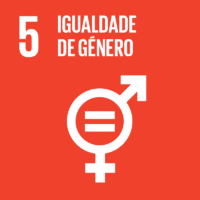Ciência_Iscte
Publicações
Descrição Detalhada da Publicação
Sacred power. Gender negotiations among Gujarati Hindus in Portugal
Título Revista
Etnografia e Ricerca Qualitativa
Ano (publicação definitiva)
2021
Língua
Inglês
País
Itália
Mais Informação
Web of Science®
Esta publicação não está indexada na Web of Science®
Scopus
Google Scholar
Esta publicação não está indexada no Google Scholar
Esta publicação não está indexada no Overton
Abstract/Resumo
Hindus have been an established presence in Portugal for more than forty years. During this period, the practice of Hinduism has exhibited both conservatism and innovation. Long-term ethnographic research among Hindu communities in Portugal over the last twenty years has recognized the complexity of the connection between religion, gender and migration. Migration leads to tensions regarding gender roles, particularly among women. Accordingly, this paper analyzes the transformation of gender roles in the Hindu communities of Greater Lisbon, focusing on women’s authority in religious activities, and on the way they have used religion to negotiate their own gender status, challenging the centrality of male roles of leadership and sacred power, while simultaneously transmitting contradictory gender models. Migration has also produced new ways of practicing Hinduism through contact with the Portuguese religious context. This paper presents the relationship between Hinduism and Christianity in Portugal from the perspective of the iconographic gender culture of the Mother Goddess and the Virgin Mary as Our Lady of Fatima.
Agradecimentos/Acknowledgements
--
Palavras-chave
Hindu diaspora,Gender,Religion,Migration,Women
Classificação Fields of Science and Technology
- Sociologia - Ciências Sociais
- Antropologia - Ciências Sociais
Registos de financiamentos
| Referência de financiamento | Entidade Financiadora |
|---|---|
| UIDB/04038/2020 | Fundação para a Ciência e a Tecnologia |
Projetos Relacionados
Esta publicação é um output do(s) seguinte(s) projeto(s):
Contribuições para os Objetivos do Desenvolvimento Sustentável das Nações Unidas
Com o objetivo de aumentar a investigação direcionada para o cumprimento dos Objetivos do Desenvolvimento Sustentável para 2030 das Nações Unidas, é disponibilizada no Ciência_Iscte a possibilidade de associação, quando aplicável, dos artigos científicos aos Objetivos do Desenvolvimento Sustentável. Estes são os Objetivos do Desenvolvimento Sustentável identificados pelo(s) autor(es) para esta publicação. Para uma informação detalhada dos Objetivos do Desenvolvimento Sustentável, clique aqui.

 English
English



